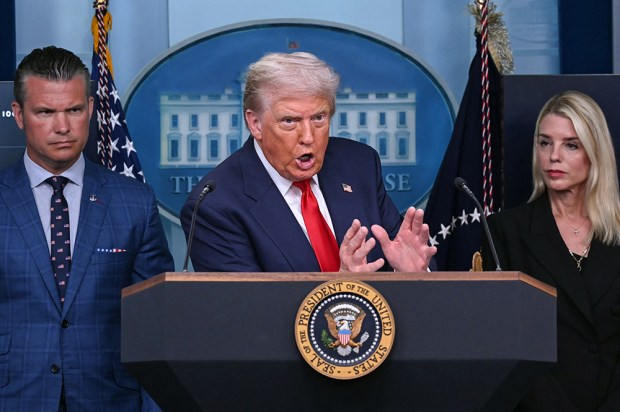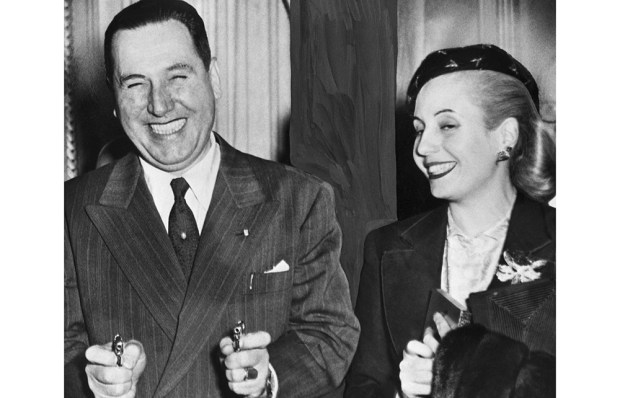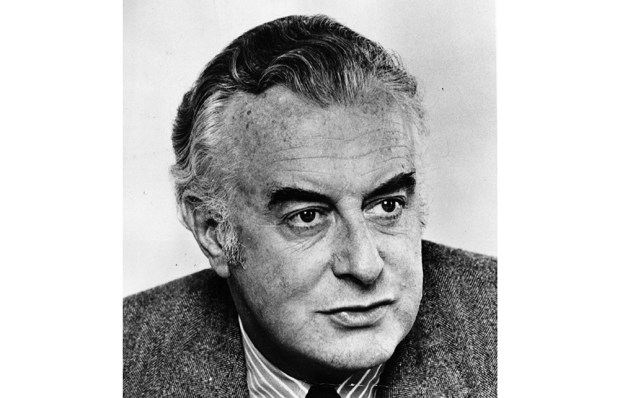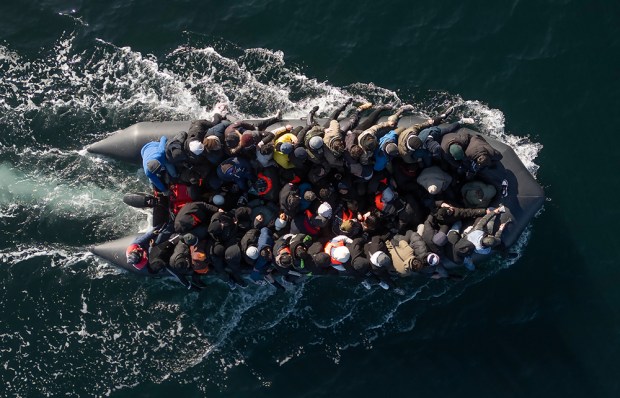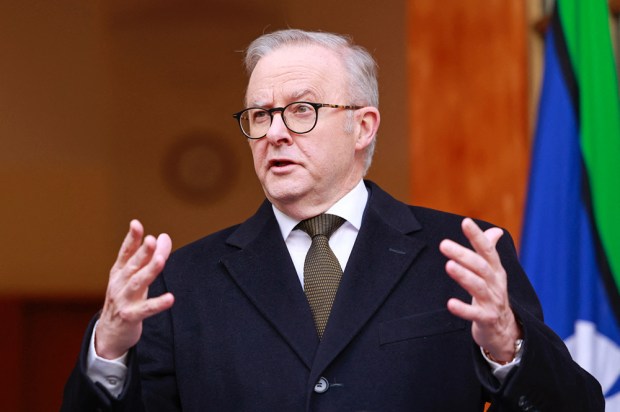For reasons of law, politics and whataboutery, Australia is wrong, as are France, Canada and Britain, to announce recognition of the state of Palestine next month.
The meaning, rights and duties of states in international law are set out in the 1933 Montevideo Convention. A state must have ‘(a) a permanent population; (b) a defined territory; (c) government; and (d) capacity to enter into relations with other states’ (Article 1). Palestine satisfies only the first condition. The de facto governing authorities are Hamas in Gaza and the Palestinian Authority in the West Bank. As a proscribed terrorist organisation, Hamas cannot enter into relations with key states. Palestine’s territory is split between Gaza and the West Bank, and straddles and is contested by Israel. The 1993 Oslo Accords anticipated that in the envisaged two-state solution, Palestine would broadly comprise Gaza and the West Bank with East Jerusalem as its capital.
The second legal dimension is genocide, which too has a precise meaning. It doesn’t depend on casualty numbers but on intent. With military dominance and nuclear capability, Israel could certainly bomb, starve and annihilate Gaza’s civilian population. Instead, based on stated intentions to target military leadership, senior Hamas officials and terrorists; orders issued to and by the military; efforts to evacuate civilians to designated safe zones with advance radio, loudspeaker and leaflet announcements; the lowest civilian-military kill ratio in the history of urban warfare; and possibly the best ever effort to feed an enemy population amidst a war, Israel has made every effort to minimise civilian casualties. Whereas, based on its founding charter, repeated threats to eradicate Israel and expel Jews from the Jordan river to the Mediterranean sea, attacks on civilians on October 7 among others, and use of child soldiers and human shields to maximise Palestinian civilian harms, Hamas shows intent but lacks capability to commit genocide.
If a picture tells a story, then two pictures make a compelling narrative of cruelty, weaponised starvation and complicity of willingly gullible media. The first was a widely republished photo of a skeletal little boy who is allegedly the victim of deliberate starvation of Gaza’s population by Israel, despite being held by a clearly healthy mother. Other photos of his healthy brother were also ignored. It turns out he suffers from a congenital illness that accounts for his condition. The second image is a video of an Israeli kidnapped on 7 October 2023 who is being held captive in Gaza by Hamas, imagery with uncomfortable echoes of photos of emaciated Jews from Nazi concentration camps. This hasn’t received anywhere near the same global attention and was studiously ignored by the marchers on Sydney Harbour Bridge who, with characteristic lack of self-awareness, chanted slogans demanding the extermination of Israel and ethnic cleansing of Jews, while accusing Israel of committing genocide.
As a political-diplomatic tactic, should recognition precede or follow the creation of a state? The Montevideo Convention stipulates that, ‘The political existence of the State is independent of recognition by the other States’ (Article 3). Almost 150 countries recognise the State of Palestine yet this has failed to turn aspiration into meaningful reality. Articles 4 to 7 clarify that all states are juridically equal, enjoy the same rights and possess equal capacity to enjoy their rights. Recognition by a state signifies acceptance of its rights and duties, including the right to freedom from intervention in internal or external affairs by other states. This explains why Palestinians want but Israel opposes recognition of a Palestinian state.
President Emmanuel Macron has said France will recognise a Palestinian state at the opening of the annual UN General Assembly session next month. PM Mark Carney says Canada will also recognise Palestine at the UN in September on condition that the Palestinian Authority commits to governance reforms and holding elections next year that exclude Hamas, the state is demilitarised and Hamas releases all hostages: a triumph of Canadian hope over Israeli experience. PM Keir Starmer says Britain will recognise Palestine if there’s no ceasefire, no renunciation of Israeli threats to annex the West Bank and no Israeli commitment to a peace process for a two-state solution. Legally speaking, tying recognition of one state to the actions of a third state – rewarding Hamas to punish Israel – is incoherent. On the one side, Ghazi Hamad of Hamas’s political bureau said in an Al Jazeera interview on 2 August that the recognition of a Palestinian state is ‘one of the fruits of October 7’. On the other, Britain’s Chief Rabbi Sir Ephraim Mirvis says recognition ‘could only disincentivise Hamas from agreeing to a ceasefire’.
Of the three, Starmer’s has the most symbolic weight owing to the pivotal role of the 1917 Balfour Declaration in the events leading to the creation of Israel. However, Britain and France can no longer settle borders in the Middle East with pronouncements from Europe. President Donald Trump is right to dismiss Macron’s statement as irrelevant, for he ‘doesn’t carry weight’. Performative statements speak more to domestic political pressures but risk damaging relations with Washington and losing leverage over Israeli policy. Israel’s plan to take control of all of Gaza might well have been provoked by the recognitions. Even the domestic impact in the long term will be to consolidate the import of foreign hatreds and conflicts into previously cohesive nations.
As for whataboutery, the biggest non-recognition scandal is Taiwan. Most countries have been bribed, intimidated and gaslit by China into refusing to recognise reality. With a 36,000-square-kilometre area and 23 million people, broadly comparable to Australia, Taiwan is in the top third in the world by population and the top fifth by GDP. It goes two better legally than the fictional Palestinian state in having a capital and a national currency. It goes three better politically with stable governance, democratic institutions and economic prosperity. On the triple measure of economic success, political stability and democratic governance, Taiwan should be a poster child of nation-building and state-building success for the UN. Instead, it is not just not recognised as a sovereign state but actively shunned, even for statistical purposes; and not just by the UN but by all the Western democracies too, for all their rhetorical commitment to adhering to principles over power. Of course, we know the reason why: appeasement of China. But and contrary to commonly held fears, the simple reality is that general recognition of Taiwan as an independent state would vastly add to the diplomatic and reputational costs of any invasion by China and thereby reinforce the normative barrier to attempt unification by force. (‘Reunification’ serves China’s propaganda but is a historical misnomer). Ironically, this mirrors the pre-1971 scandal when Taiwan occupied China’s permanent seat at the UN Security Council and the People’s Republic of China was shunned. Clearly, the mythical ‘international community’ has not lost the capacity for self-delusion.
Got something to add? Join the discussion and comment below.
You might disagree with half of it, but you’ll enjoy reading all of it. Try your first month for free, then just $2 a week for the remainder of your first year.


